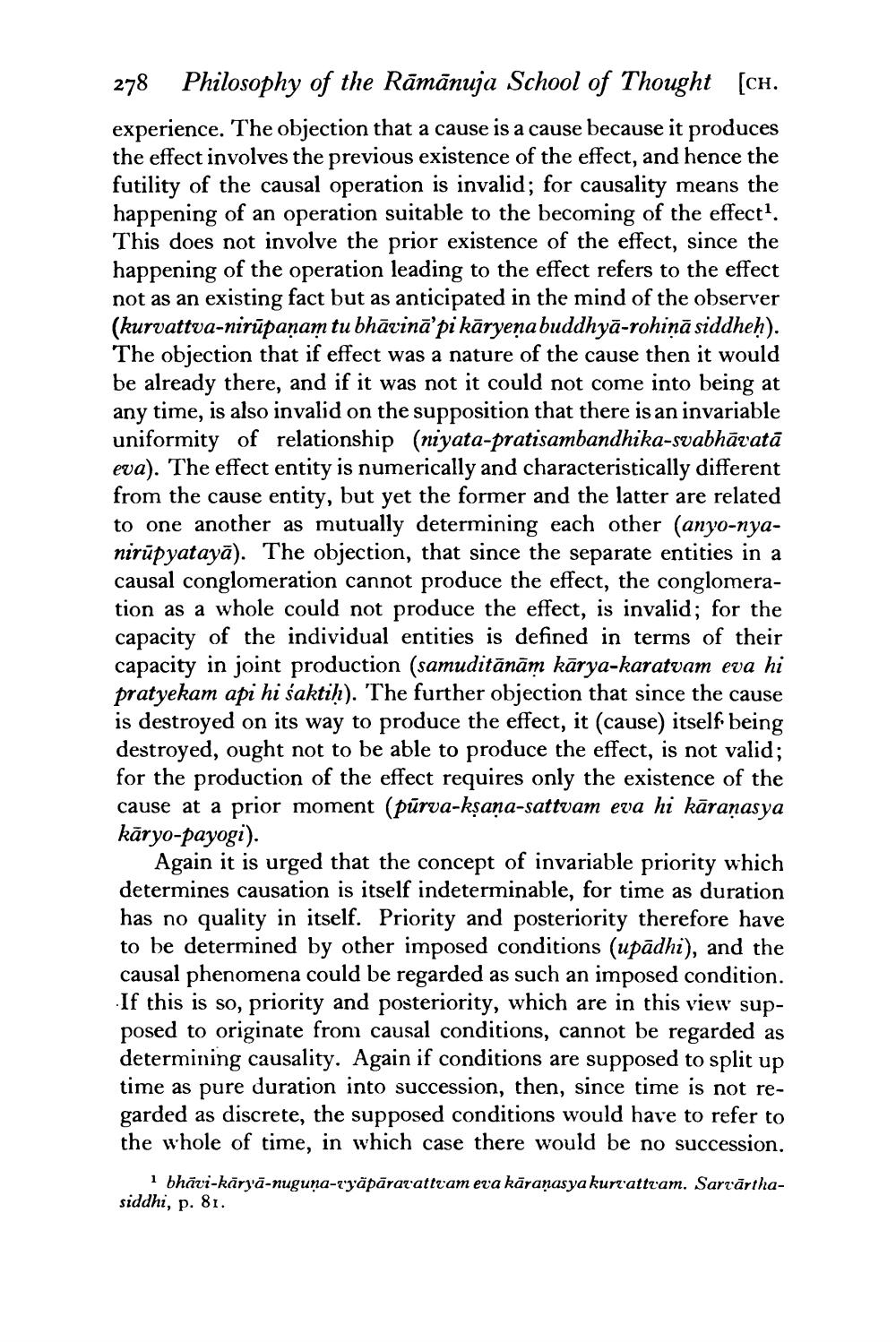________________
278 Philosophy of the Rāmānuja School of Thought [ch. experience. The objection that a cause is a cause because it produces the effect involves the previous existence of the effect, and hence the futility of the causal operation is invalid; for causality means the happening of an operation suitable to the becoming of the effect?. This does not involve the prior existence of the effect, since the happening of the operation leading to the effect refers to the effect not as an existing fact but as anticipated in the mind of the observer (kurvattva-nirūpaņam tu bhāvinā'pi kāryeņa buddhyā-rohiņā siddheḥ). The objection that if effect was a nature of the cause then it would be already there, and if it was not it could not come into being at any time, is also invalid on the supposition that there is an invariable uniformity of relationship (niyata-pratisambandhika-svabhāvatā eva). The effect entity is numerically and characteristically different from the cause entity, but yet the former and the latter are related to one another as mutually determining each other (anyo-nyanirūpyatayā). The objection, that since the separate entities in a causal conglomeration cannot produce the effect, the conglomeration as a whole could not produce the effect, is invalid; for the capacity of the individual entities is defined in terms of their capacity in joint production (samuditānām kārya-karatvam eva hi pratyekam api hi saktiḥ). The further objection that since the cause is destroyed on its way to produce the effect, it (cause) itself being destroyed, ought not to be able to produce the effect, is not valid; for the production of the effect requires only the existence of the cause at a prior moment (pūrva-kşana-sattvam eva hi kāraṇasya kāryo-payogi).
Again it is urged that the concept of invariable priority which determines causation is itself indeterminable, for time as duration has no quality in itself. Priority and posteriority therefore have to be determined by other imposed conditions (upādhi), and the causal phenomena could be regarded as such an imposed condition. If this is so, priority and posteriority, which are in this view supposed to originate from causal conditions, cannot be regarded as determining causality. Again if conditions are supposed to split up time as pure duration into succession, then, since time is not regarded as discrete, the supposed conditions would have to refer to the whole of time, in which case there would be no succession.
1 bhāvi-kāryā-nuguna-z'yäpāratattram eva kāraṇasya kurtattram. Sarrārthasiddhi, p. 81.




